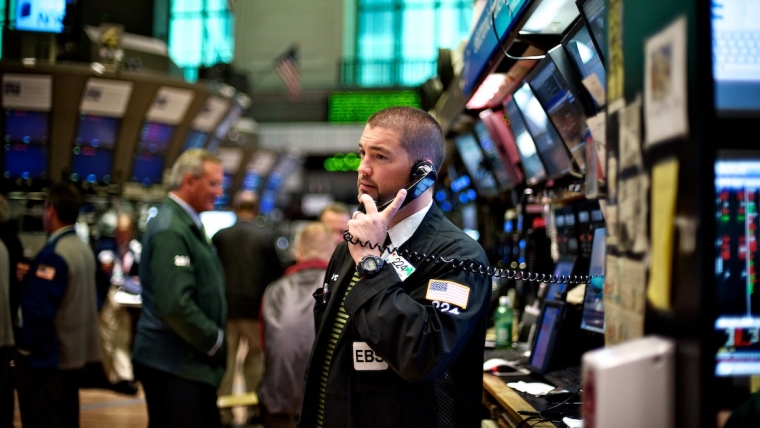
Equity markets remain volatile. Earlier gains in the S&P500 and NASDAQ have given way to another sizeable sell-off. The risk-off backdrop has driven an appreciation in the USD, falls in commodity currencies and a decline in global rates. The standout mover in currency markets has been the GBP, which has fallen heavily again overnight on mounting concerns around Brexit.
Brexit is back in focus for market. The European Commission responded overnight to the UK’s draft Internal Market Bill by threatening legal action (including financial or trade sanctions) if it is not withdrawn by the end of the month. The Internal Market Bill would allow the UK to override parts of the previously agreed withdrawal agreement, which the EC said had “seriously damaged trust” and risked jeopardising trade talks. Cabinet minister Michael Gove said the UK had no intention of backing down however, saying he had made it “perfectly clear” to his EC counterpart that the UK government “could not, and would not” change the bill.
With negotiations of a trade deal deadlocked for now and the UK government seemingly intent on sabotaging the negotiations with the Internal Market Bill, market concerns about a “no deal Brexit” have escalated. The GBP, which has been under pressure since the bill was released, fell as much as 1.7% overnight, from 1.30 to around 1.2780. It has recovered slightly, to 1.28, but remains the standout mover in currency markets. The market is now pricing around 20bps of rate cuts by the Bank of England over the coming 12 months, to around -0.1%.
The news on Brexit has added to the already shaky sentiment in equity markets. The S&P500 had been up almost 1%, building on its strong gains from the previous session, but it has since fallen away sharply. The S&P500 is now down 1.4%, while the NASDAQ is 1.8% lower. Volatility in equities remains high, with market sentiment having been rattled by the large tech-led sell-off over the past two weeks.
The ECB meeting took place before the Brexit headlines hit the screens. The ECB kept all its policy settings unchanged, including its deposit rate at -0.5% and its asset purchase programmes. The ECB upgraded its growth forecasts for this year (growth of -8% compared to -8.7% previously) and inflation forecast for next year (1% vs. 0.8% previously) with President Lagarde noting that these projections didn’t include the full impact of the recently agreed €750b EUR recovery fund. Lagarde said the Governing Council didn’t discuss expanding the ECB’s bond buying programme but, with inflation so far below target, most analysts expect more bond buying to be announced in due course.
Asked about the appreciation in the EUR exchange rate, President Lagarde said it was “not a target”, adding that the ECB would “carefully assess incoming information, including developments in the exchange rate, with regard to its implications for the medium-term inflation outlook.” In the Q&A, Lagarde took plenty of questions on the exchange rate and though her comments varied from “carefully assessing” to “extensively monitoring”, the read-through is the ECB is not going to overreact to the EUR’s moves; at least not at this stage. The EUR traded as much as 1% higher, to almost 1.1920, during Lagarde’s press conference but the subsequent Brexit-induced weakness in the GBP has since seen it has give back most of that move. The EUR is 0.2% higher on the session, despite broad-based USD strength elsewhere, at around 1.1825.
The falls in equity markets and broader risk-off sentiment have boosted the USD, with the Bloomberg DXY swinging from a 0.5% decline to a 0.2% gain. The USD has been highly correlated with equity market moves this past week.
More cautious risk appetite has seen the NZD and AUD fall 0.4% and 0.3% respectively. The NZD traded above 0.67 at one point overnight, as the EUR broke above 1.19, but it has reversed that move, and then some, as equity markets have fallen away over the past few hours. It trades this morning around 0.6655. We think the NZD is due a period of consolidation over the remainder of the year.
US Treasury yields have fallen in sympathy with equity markets overnight, although the 10-year rate is close to where it was at the end of the NZ trading day yesterday (0.68%). The yield on the German 10-year bond future has given back its modest rise after the ECB meeting (consistent with a 10-year bund yield of around -0.46%).
There hasn’t been much reaction to economic data over the past 24 hours. US jobless claims were little changed last week, at 884k, consistent with a levelling off in the pace of improvement in the labour market. Jobless claims remain at an extremely high level on a historical basis. US PPI was marginally higher than expected, but the market’s focus is always on the CPI release, which comes tonight.
There was a modest reversal higher in NZ rates yesterday, a day after the 2-year swap rate and the 2023 maturity government bond yield briefly crossed into negative territory. The sell-off in global bonds on Thursday night and some profit-taking in NZ rates pushed the 2-year swap rate 3bps higher, to 0.03%, and the 10-year rate 6bps higher, to 0.57%. There was also steepening of the government bond curve. Yesterday’s bond tender saw strong demand for the 2024 maturity but weaker demand for the 2037 bond.
In domestic data, yesterday’s electronic card spending data showed total spending declined 7% in August, partly due to the reimposed lockdown in Auckland. Even with the fall in August, there should still be a sizable bounce in retail trade volumes in Q3.
Daily exchange rates
Select chart tabs
1 Comments
Boris is clearly trying bully boy tactics, which never works. Not surprise the Pound is plunging. BBC Brexit: EU ultimatum to UK over withdrawal deal changes. "The EU is demanding the UK ditches plans to change Boris Johnson's Brexit deal "by the end of the month" or risk jeopardising trade talks.". https://www.bbc.com/news/uk-politics-54097320

We welcome your comments below. If you are not already registered, please register to comment
Remember we welcome robust, respectful and insightful debate. We don't welcome abusive or defamatory comments and will de-register those repeatedly making such comments. Our current comment policy is here.